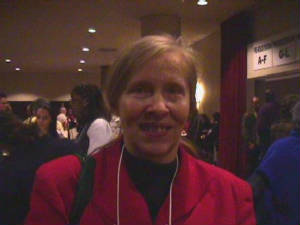Social
work as a profession can trace its commitment to Social and Economic Justice back to its earliest roots. Whether
that commitment is to individuals, groups, communities, social institutions, national concerns or international concerns,
generalist practitioners have always maintained an allegiance to this key principle.
In this issue, Guest Editor Barbara
Shank has gathered articles that examine four separate but complimentary views of social justice. All of
these articles link closely to the definition of social justice embraced by the social work profession.
However, there are other definitions of
social justice to be considered. Economist Walter Block offers us three perspectives on social justice.
The first of these encompasses a liberal perspective (e.g., poverty is a product of capitalism; laws should be passed
to regulate social problems). Block offers a second approach to social justice as a topic of research,
and notes that this perspective suggests that social issues should be studied without reference to any particular political
viewpoint. Finally, Block offers a third perspective on social justice that refers to justice in the social
arena. According to this third perspective, liberals would focus on egalitarianism and conservatives would
focus on property rights. Under the third perspective, liberals and conservatives might both champion social
justice as a value while simultaneously working toward opposite goals and objectives. (http://www.lewrockwell.com/block/block37.html, Retrieved 5/20/08).
People with opposing ideologies can and do claim to be proponents of social
justice. Thus it becomes extremely important for us as social work educators to clearly define this term
for our students and to explain to them the ambiguities that are often associated with this term by others.
In my macro social work methods
class and my policy class, one of the key assignments for the semester is for students to watch five reruns of All in the
Family. Although he does not use the term “social justice”, Archie Bunker expresses the belief
that justice or fairness involves elimination of social programs that provide advantages to particular groups that they have
not “earned” or “purchased”. Archie clearly expresses the view embodied in the
Norm of Reciprocity. This norm is easily taught by asking students what they would have to do if I were
to buy them lunch today. They respond immediately that they would have to buy me lunch tomorrow.
If they were to add desert to the lunch that they bought me, they understand that I would, then, owe them a desert.
I then discuss how social work clients often involuntarily "violate" the norm of reciprocity
by receiving services for which others have paid. We note that agencies must respond to those who pay the
bill for services, even when this means that some client needs remain unmet. We look at the words in the
All in the family Theme Song; “…Didn’t need no welfare state. Everybody pulled his weight…”
This discussion asks social work students to recognize the fact that much of society has very different values than
we have. Even when those values appear to coincide, the terms on which we appear to agree may have very different definitions.
From there, the class can move to determine
what real commonalities exist between social workers, social work clients, and the larger society. This
is a step that is vital for students to take if they are to successfully engage others in larger settings, including agencies,
communities, and the larger society.
Our guest editor, Barbara Shank, and the authors of the four social justice articles are challenging
us to look beneath the surface of some of the issues and ethical dilemmas with which we as a profession are presented.
I hope that you will find the articles in the issue of Update to be as thought provoking as I have found them to be.

